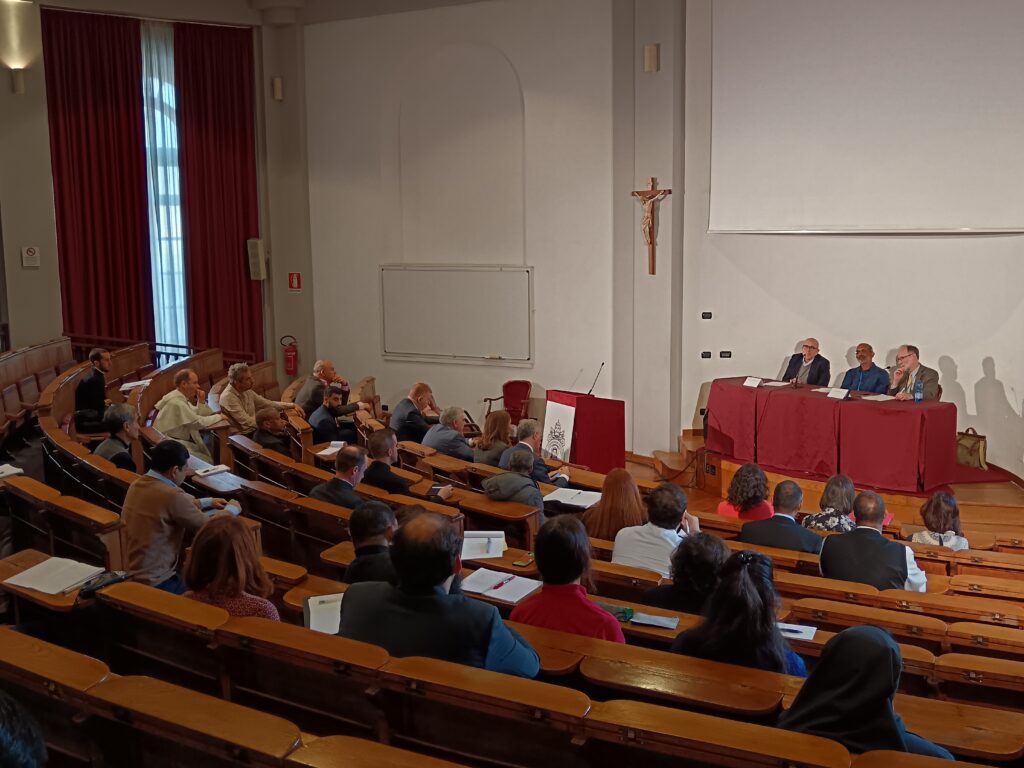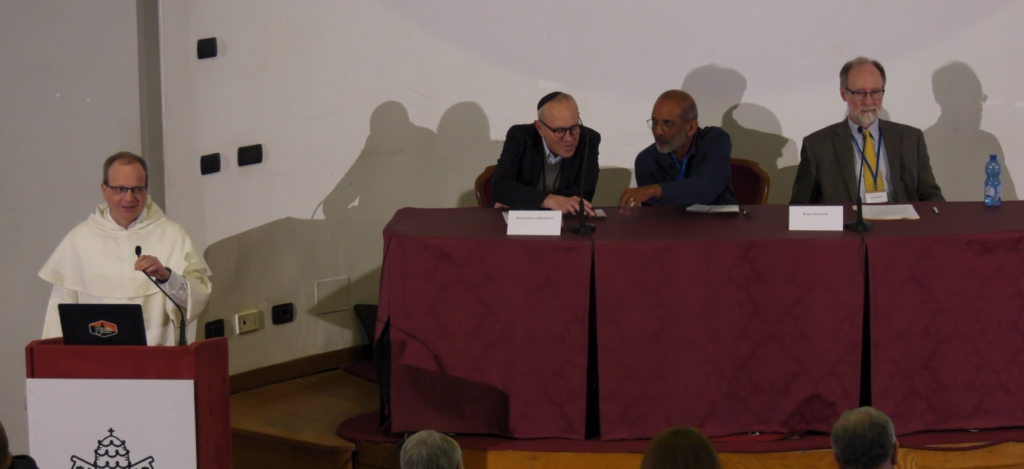On April 10 and 11 the Angelicum was the venue of a closed-door reflection of international scholars who gathered to explore together the heritage of Thomas Aquinas and Maimonides for Jewish-Catholic dialogue today. The event was co-sponsored and co-organized by the John Paul II Center for Interreligious Dialogue and the Pontifical University of St. Thomas Aquinas with its Institute for Ecumenical Studies.
The sessions touched upon different topics such as Maimonides’ Halakhic outlook on Christians or Thomas Aquinas as Resource for Difficult Questions in Jewish-Christian Relations Today. On April 10 a public event “Returning to Aquinas and Maimonides for today’s Jewish-Catholic relations” offered the chance to a large public to hear some of the closed door conversations and conclusions with the inputs from Prof. Menachem Lorberbaum (Professor of Jewish Philosophy at Tel Aviv University) and Prof. Bruce Marshall (Lehman Professor of Christian Doctrine in the Perkins School of Theology at Southern Methodist University in Dallas, Texas).

The co-chairs of the conference, Prof. Gavin D’Costa (Visiting Professor of Interreligious Dialogue at the Angelicum and Emeritus Professor of Catholic Theology at the University of Bristol) and Prof. Adam Afterman (Director of the John Paul II Center for Interreligious Dialogue, Professor in the Department of Jewish Philosophy and Talmud at Tel Aviv University) shared a few thoughts at the end of the experience.
“If, in the earlier years following Vatican II, the dialogue between Catholics and Jews was more at the diplomatic level, and the meeting itself, the shaking of hands, and the commitment to the dialogue was the point; now, we are in a stage where we are confident enough to engage some of the painful and challenging problems that emerge from our shared traditions and history,” states Prof. Afterman who is also a Fellow at the Shalom Hartman Institute in Jerusalem. “Our aim – he continues – is not to reach an agreement or a common theological ground, but on the contrary, each side presents his traditional perspective from a critical point of view”.
What we witnessed therefore on April 10 and 11 was “an advanced discussion between highly committed scholars from Jerusalem, Rome, and the rest of the world. To that end, the Angelicum is an ideal host as we are confident that, as Jewish scholars, we will engage the leading academic authorities, and we are committed to doing the same,” Prof. Afterman concluded.

“I learnt much from this conference,” said Prof. Gavin D’Costa. “Our great mediaeval thinkers, both Jewish and Christian, have so much to teach us today: first, that we must be faithful to our biblical sources and core beliefs; second, that we must be creative and develop our beliefs to relate to each specific situation; third, that we learn from what each has to say rather than imagining what their position will be. Dialogue happens when you meet real Jews and real Catholics rather than imagined ones.”
“At this event – Prof. D’Costa summarized – there were real Jews and real Catholics in serious conversation helping us think about the present, past and most importantly, the future.”

